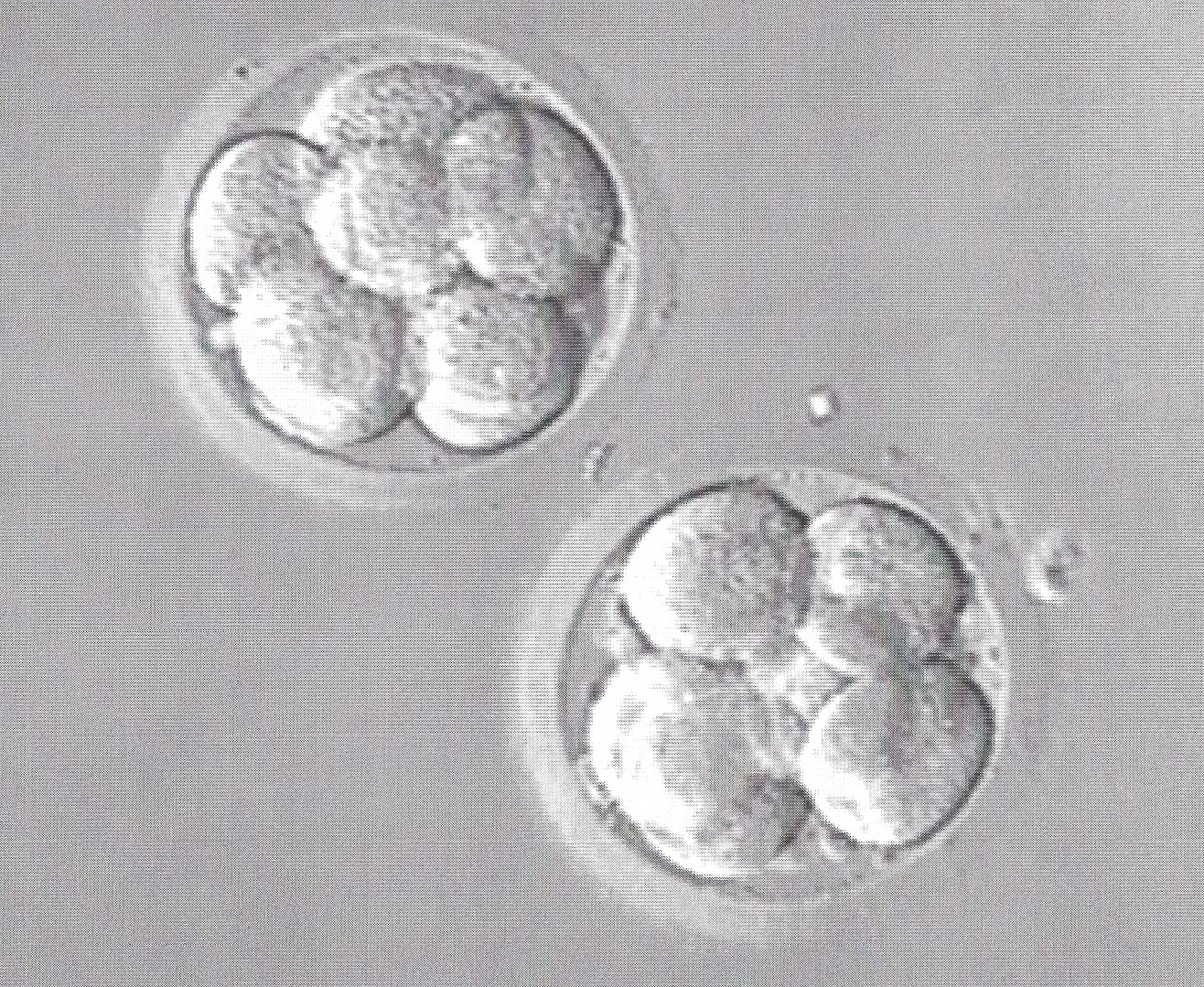Embryo images (3 day transfer)
The transfer went smoothly (much more to say about it later).
For now, here’s a picture of the two embryos:

Tales of a journey through infertility into (hopefully) fatherhoodPosts RSS Comments RSS
The transfer went smoothly (much more to say about it later).
For now, here’s a picture of the two embryos:

Better news today: L was told that the two embryos are “perfect” (grade: AA).
We’ll proceed with the Three Day Transfer (3DT) tomorrow at 9am.
One of L’s favorite infertility / IVF blogs is Murgdan’s Conceive This!, which I can understand as it is both smart and funny (something I aspire to achieve here).
Anyway, Murgdan had an even crappier day yesterday than us, as IVF cycle #1 officially flamed out with a negative result on her blood test. This was after a seemingly successful cycle and a five-day transfer of two good embryos. Of course, she posted these results on her blog and a flood of supportive comments came pouring in.
In looking at the comments, I noticed most were from women. It seems there aren’t nearly as many dudes (at least not actively participating) in the IVF blogosphere. I think that’s unfortunate. And, it’s one of the things I’m hoping this blog will provide: a male voice on issues of infertility.
Yesterday was tough. L and I talked for a number of hours about our low fertilization rate and what that might imply for the future. She was upset, worried, and dejected. I was mostly depressed.
Up to now, we’ve been very optimistic about our long-term chances of success with IVF. Our doctor seemed to feel good about us. We were accepted by and participated in a “shared risk program” (a sort of IVF package / insurance deal), which I’m sure uses actuarial tables to statistically minimize their risks.
L did a fine job cooking up the eggs. And, my spunk seemed dandy.
Yet, only 2 of the 7 eggs managed to fertilize. 2 of 7! That’s about 28%
Dr. Google tells me that IVF/ICSI usually has resulted in a 70% or higher fertilization rate in clinical trials. Of course, some unfortunate couples (about 3%) suffer from “total (or complete) fertilization failure,” meaning no eggs successfully fertilize through ICSI. The primary cause for ICSI fertilization failure seems to be (paraphrasing from the medical literature) either “fucked up sperm,” or “fucked up and/or too few eggs.” All of this leads me to believe that IVF will not be as easy as I’d hoped.
Could we still be successful on this cycle? Yes.
But, yesterday was definitely a hard, cold slap of reality.
Time to repeat my Eeyorish mantra:
It can always get worse.
Today, we’ll find out how the embryos are doing.
I found a blog post today which attempted to generalize the communication differences between men and women related to IVF as a means of explaining (or perhaps justifying) the blogger’s husband’s unwillingness to discuss infertility and apparent apathy toward having a child. Specifically the author said:
I still think it is unbelievably frustrating that we were never really on the same page in our thoughts, concerns and fears regarding infertility. However, I do have to concede that I honestly don’t believe it is a result of communication conflicts between my husband and I. Rather, I think it is more the fault of inherent communication conflicts between men and women.
My take: what a load of crap!
As a man in the midst of infertility treatment, I’ve spent countless hours talking to L about our situation. We’ve discussed, planned, argued, compromised, consoled, and comforted each other throughout the process. For us, communication is not a problem.
That said, plentiful communication doesn’t always equate to like minds.
And, sometimes communicating our personal truths to each other has been painful.
For example, I am (or at least was) more ambivalent about having children than L. For her, it’s a need. She feels like she has to be a mother in life. For me, it’s a want. I’m excited (and also made somewhat anxious) by the prospect of being a father, but it’s more of the icing on top of the cake (and not the cake itself) for me.
To me, it sounds like this blogger’s husband was in a similar place to me emotionally. But, he appeared unwilling to express his feelings. And, really, she didn’t seem to want to hear that he wasn’t as “into it” at the time as she was anyway.
Of course, L didn’t want to hear this from me either. At least not initially. Yet, I felt it was important for us to fully understand both our individual and shared feelings. Having had this dialogue, we’ve been able to reach common ground, understand one another better, and proceed through treatment with relatively little drama, supporting one another along the way.
In the end, I think communication is important. But, empathy is probably even more so.